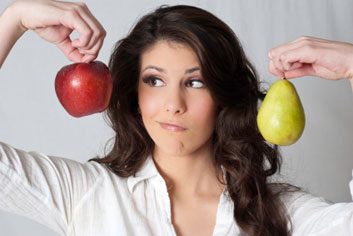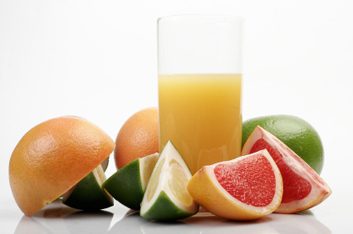
Debunking common myths
We all know the main rules for good nutrition – eat plenty of fruits and vegetables, limit fat and drink plenty of water. But going beyond the basics to separate fact from fiction is tough. You want to eat well, but need some expert advice to stay on the right path. Read on to get the facts to debunk some common food myths.

Myth: Vitamins, minerals and other supplements can counteract a poor diet
Can a multivitamin make up for poor eating habits? “No,” says Shauna Lindzon, a registered dietitian in Toronto. “It’s always better to get vitamins and minerals from whole foods because there are a lot of different compounds in foods that get lost when they are processed into supplements. We don’t know how well vitamins and minerals get absorbed from supplements.” According to Lindzon, whole foods have nutritious components other than vitamins and minerals, such as live enzymes, phytochemicals and fiber, that are lost when taking vitamins and mineral supplements on their own. The bottom line: “eat whole foods that haven’t been tampered with,” says Lindzon.

Myth: Caffeinated beverages cause dehydration
For years it’s been said that caffeine has a diuretic effect causing increased urination. But research refutes this. A study published in The International Journal of Sport Nutrition and Exercise Metabolism found no significant impacts in hydration for adults ingesting caffeine versus a placebo. Lindzon says that, “You would have to drink a large quantity of a caffeinated beverage to dehydrate you.” She points out the importance of staying well hydrated, especially for athletes. “The gold standard is that you should be taking in approximately 500 millilitres of water for every hour of exercise.”

Myth: Skipping breakfast will help you to lose weight
While skipping breakfast may seem like a good idea, it can lead to poor food choices later in the day. A 2005 study in the American Journal of Clinical Nutrition found that those who missed breakfast tended to consume more calories resulting in weight gain. Eating breakfast is especially important before a workout, says Lindzon. “I usually tell people to have some form of hydration within 30 minutes of waking up and 30 minutes before going to the gym.” She usually recommends a fruit smoothie made with some yogurt, milk, fresh fruit or frozen fruit, a banana, some ground flax seed and some wheat germ to get a boost of energy before working out. “You don’t want to fill up on too much food or have your stomach become too heavy prior to exercise, but you do want to make sure that you have enough energy to do a good workout,” she says.

Myth: A diet high in carbohydrates will make you fat
People think that consuming too many carbohydrates will make them fat. In Sheila’s Nutrition Digest Volume #8, World Masters Champion cross-country skier Sheila Kealey says that, “Eating too many calories is what causes people to gain weight, not the specific ratio of carbohydrates, protein, and fat.” Kealey also says that, “Carbohydrates should be the foundation of a nutritious diet.” Kealey cautions that avoiding high carbohydrate foods means missing “the important nutrients found in fruits, vegetables, and whole grains.”

Myth: Drinking fruit juice is just as healthy as eating fresh fruit
While juice may be more convenient and less messy than fresh fruit, it lacks some important nutrients. According to Lindzon, when fruit is juiced, the main nutrient that is lost in processing is the fibre. Lindzon says that, “You need fibre to regulate your blood sugar levels. Eating the whole fruit will stabilize your blood sugar level much more than drinking juice.” Lindzon recommends that if you are a juice drinker, limit it to no more than ½ cup per day and make your own fresh juice using a blender like a Vitamix that pulverizes the fruit and keeps the fiber so you are still getting the benefits of the whole fruit. The best scenario according to Lindzon is to avoid processed juice and stick to water with added orange, lemon, lime, blueberries or raspberries for a flavour boost.
Related:
• 7 myths and truths about food
• 5 food myths you need to stop believing
• 9 healthy hydrating foods
